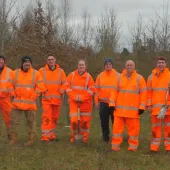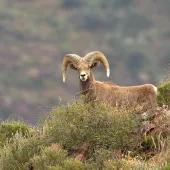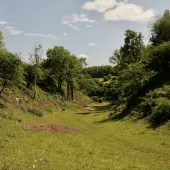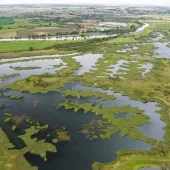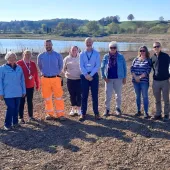Quinn sign-up to All-Ireland Pollinator Plan

Company springs into action to help protect and preserve native Irish insects and ecosystems
QUINN Building Products and Quinn Packaging have become Business Supporters of the All-Ireland Pollinator Plan, a nationwide initiative to address the decline in pollinator numbers across Ireland, including the bee population, and have immediately started putting their plan into action.
Recognizing that Spring is a critical time of year for bees, the company has already planted more than 180,000 specially selected pollen- and nectar-rich spring flowering bulbs and 240 native trees at three Quinn sites.
The native trees, which will also provide berries to feed birds throughout the winter, have been underplanted with wildflower meadow covering an area of 1,000 square metres, which will provide food for pollinator species until late Autumn.
Commenting on the initiative, Quinn’s environmental advisor, Oisin Lynch, said: ‘The protection of pollinator insects is crucial to preserve native Irish ecosystems and to avoid the potentially catastrophic impact if the decline in numbers was allowed to continue. We have a duty to be part of the solution and are delighted to sign up to the All-Ireland Pollinator Plan and take action on this issue.
‘As a company, we’re committed to minimizing our environmental impact and our local eco-system is a very important area of focus for us. There is a growing demand for businesses to demonstrate progressive environmental credentials and we have drawn great encouragement from the enthusiastic response of those that have been made aware of our participation in this project.’
The All-Ireland Pollinator Plan is a cross-border initiative set up in response to, and to halt, the alarming decline in pollinators across Ireland. Many insects play some role but most pollination on the island is carried out by Ireland’s 99 different species of bees.
Bees are active from March through to September and require food and shelter throughout this period and beyond. Irish bee populations have reduced significantly in recent years through habitat destruction, including the removal of hedgerows and the demise of wildflower meadows through horticultural chemical use and the preference of farmers to make wet silage rather than hay.
On a global scale, 40% of insects are declining and one third are endangered worldwide, with a real risk of extinction if swift action is not taken. At least €53 million worth of fruit and vegetable production would be lost annually in Ireland if pollinators were to die out.
Moreover, the countryside would lose its colour with the loss of 78% of the island’s wild plants that require pollination. Protecting Ireland’s pollinators is, therefore, crucial to preserving native Irish ecosystems.
Ireland is among the first countries in Europe to recognize and develop a strategy to address this problem. The All-Ireland Pollinator Plan identifies 81 actions that will help pollinators survive and thrive, and individuals, farmers, companies, schools and communities are all being encouraged to sign-up to the programme.



